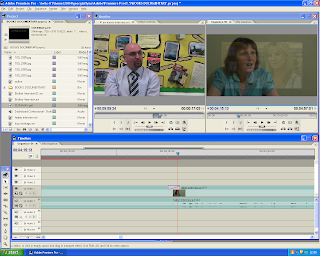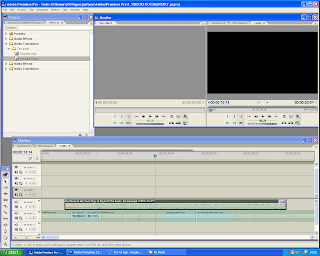Wednesday, 29 December 2010
Codes and Conventions of Newspaper adverts
One main striking image that sums up the program
Text on advert: Slogan
Title
Scheduling
Tv Logo.
examples at
http://www.4creative.co.uk/flash/#/print/press_and_poster/britains_forgotten_children_girl
Radio script
Radio Trailer:
Are you sitting comfortably? Then we’ll begin.
Cathrine Cookson, A child called it, (VOXPOP)
So many people love getting lost in a book but why is it that reading has become less popular for the younger generation over the past few years?
Hope interview: ‘’i don’t really like reading...” (DOCUMENTARY)
Mr Morris – “fire up students’ imagination...” (DOCUMENTARY)
Would society be lost without books? Are computer games beginning to turn the nation’s youth into illiterates?
Once upon a time, Wednesday 8pm on ITV1
Codes and Conventions of Radio Trailers
Voice over through out the trailer - same person from the program
Trailer should intrigue the audience
Scheduling information at the end
Title-day/time- channel
^^ order of the scheduling in trailer
Music bed- where appropriate. Different music is used to promote the genre of the documentary.
Sound effects depending on the documentary.
30-40 seconds long
slogan.
Monday, 27 December 2010
voice over scripts
Voice over
Voiceover 1:
Reading plays a huge part in changing the nation whether it is reading a novel or a poem in our spare time or reading for school. It seems that at a young age children enjoy reading and can’t get enough of it but there are concerns that nowadays teenagers do not enjoy reading as much and just see it as something they are made to do in school.
Voiceover 2:
Books have affected the way in which we see the world. Yet many people just take reading for granted. Does reading only mean something to the older generation? Do people take for granted having the ability to read? How does it feel for people who have difficulties learning to read? How do different people get taught how to read and how does this help them?
Sunday, 12 December 2010
Editing

This is us editing on Premire Pro., we are editing what we want to go into the Ollie's interview, and what shouldn't go in the interview as well s the cutaways, you can see from hte two different screens.

This is us cutting and choosing our cutaways which go into our montage.

Whilst editing we decided that the cutaway of the Blindside, which you can see fading in the right screen was uneeded. This is deciding whether or not it worked.

Radio trailer is only audio so whilst edidint their was new visuals, in this screen shot we are adjusting the sound levels of the musicbed.
Georgia editing the young persons (Ollie) interview, whislt i filmed.
Tuesday, 9 November 2010
Planning: Interview questions
1. Tell me your favourite book.
2. Do you like to read and why?
3. Tell me about the amount you read in schoool.
4. What do you like about reading?
5. Do you prefer to erad to yourself or have a parent for you and why?
6. Is reading something you find hard? Why?
7. Tell me about how often you read.
8. If you could write a book, what would you write about and why?
Interview with an Author:
1)What was your inspiration to become an author??
2)What is your favourite think about writting books?
3)Do you feel your books make an impact on you readers?
4)Do you feel that reading is less popular from when you began writting? How?
5)Do you remember the first book you read? What was it?
6)What age did you start writting?
7)What motivated you to start writing?
8)How did you learn to read?
9)What is your favourite book?
Parental consent for a young child to be filmed
Sunday, 17 October 2010
Research for documentary.
Formal proposal
Formal proposal for documentary
Title: How things changes – The book age
Topic of documentary: Books
Type of documentary: Mixed with a full narration throughout
Style of documentary: Informal, informative... using lots of short clips and will also be fully narrated
Channel and Scheduling: ITV1 Wednesday 8pm
Target audience: 17 -30 years old
Primary research needed:
- Finding interviewees for the programme
- Finding locations for the filming
- Finding props for mise-en-scene of the interview
Secondary research needed:
- Get extracts from The bli
- Still photographs, music, relevant documents e.g maps, official reports or surveys: newspaper and magazine article books
Narrative Structure:
- Non Linear single strand
- Open narrative structure
Outline of content:
- Do people prefer to read the book or watch the film?
- Has the standard of English decreased over time?
- Why is it that people don’t read anymore?
- Do children learn slower or faster?
- How blind people learn to read
- How children with disabilities learn to read
- Adult Literacy
- Why people enjoy reading books? Why they don’t?
- Are autobiographies more popular than novels... why?
INTERVIEWS
- Young children
- Teenagers
- University students
- Young adults
- Blind Children
- Local Authors
- English teachers
- Primary school teachers
- Learning mentors
- Interview with a well known film director who has adapted a book into a film
- Interview with learning specialists
- Interview with historians who have researched literature
CUTAWAYS
- Extreme close up: people writing
- People shopping in book stores
- Young children reading books
- People working into libraries
- People in libraries
- Pupils being taught in schools
- Stereotypical groups
- Panning across books
- Archive material
Monday, 4 October 2010
Target Audience : Questionnaire result conclusions

We asked thirty people how old they were on our questionnaire, as you can see the majority is sixteen to twenty, with thirty and over being second which tells us that our target audience must be within this age range.
Male or female?

The majority of our target audience would consist of women however there are only ten more women then meaning showing that we could still have a mixed target audience.
Occupation?

The majority of our target audience would be mostly made up of students as students was the most popular.
What is your favourite colour?

We have a vareity of colours which means that we would most likely use the most popular during our documentary to catch the target audiences eye. Our main colours would be pink, purple and red as these were the most popular.
What is your favourite song?

we asked our target audience what their favourite songs are so we could use these as music beds during our documentary, we got many different choices showing that our target audience is a wide range and we had a multitude of songs to choose from.
What is your favourite TV channel?

From the pie chart above you can see that ITV is the most popular channel for our target audience so we would put our documentary on ITV to get the most viewers.
What time of day do you normally watch TV?

Our target audience mostly watches Tv in the evening, so we would put our documentary on in the evening, we would aslo have to look at scheduling to make sure that it does not clash with anyone other popular prime time Tv shows.
What day do you normally watch TV?

The majority of the target audience watch Tv monday to friday, with a few watching all week. This would mean to gain the most amount of viewers we would schedule our documentary during this period of time.
Do you read?

Majority of our target audience do read which would mean that many would like to watch a documentary based on this topic, however many also say no which gives us contrast and an angle to work with.
Do you prefare Films or books?

From this bar chart we can conclude that most of the target audience prefare films, which means during our documentary we can explore why this is.
What do you do in your spare time?

We asked what our audience does in their spare time, so we can use this why people don't read as much as they did twenty years ago.
Why do you think reading became less popular?

Do you remember the first book you read?

The majority of the target audience can't remember their first book, however many can so we can use this as yet another basis of research when asked how did you learn how to read.
When did you last buy a book?

Most of our audience don't know when they last bought a book showing many people do not buy books as often as they used too.
Has the standard of english decreased since the popularity of reading fell?

Many believe that the standard of english has decreased therefore this would give us another foundation to base our research on.
Do you prefare reading electronic books or paper books or why?

Many of our target aduience prefare paper books ratehr the electronic books, which is in contrast to the revolution of technology, we can use this as yet another foundation for research.
What do you associate with reading?

There are many different things associated with reading, most of our target audience associate it with relaxing, we could ask why? Why does it relax them?





























